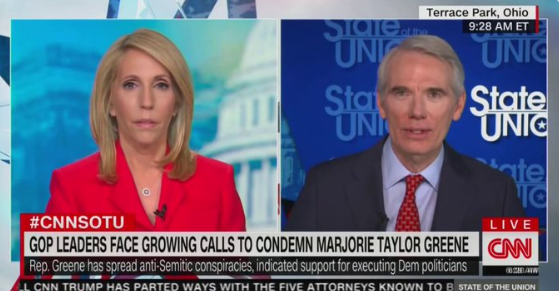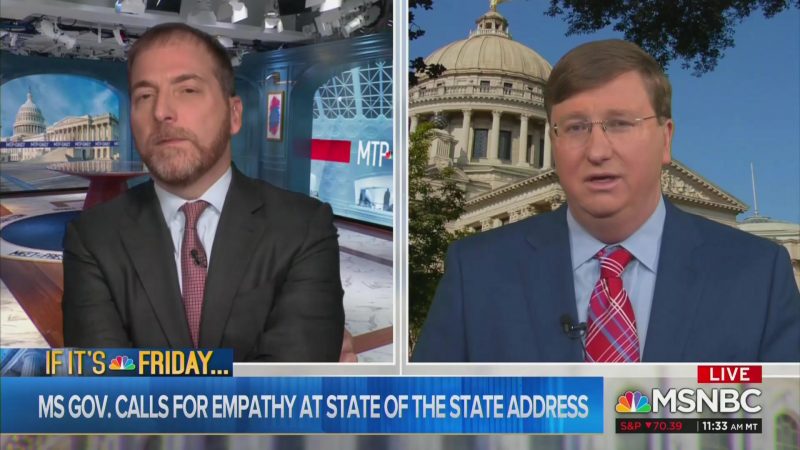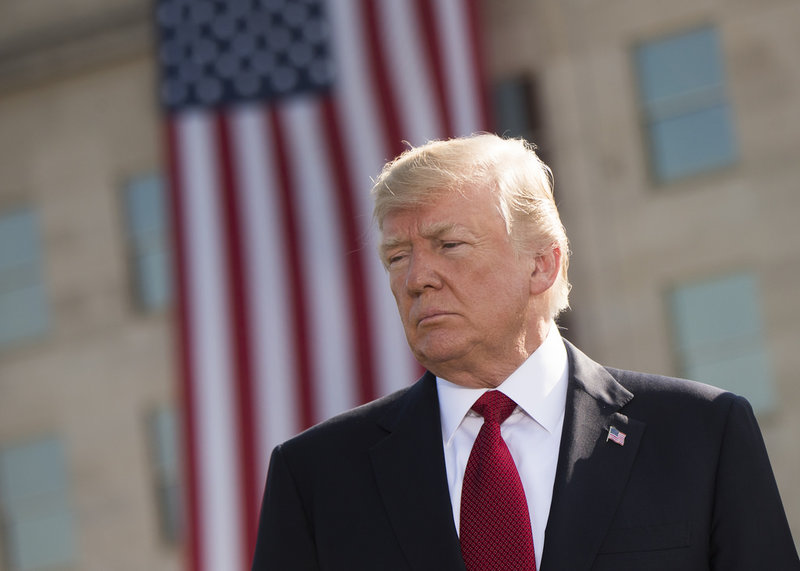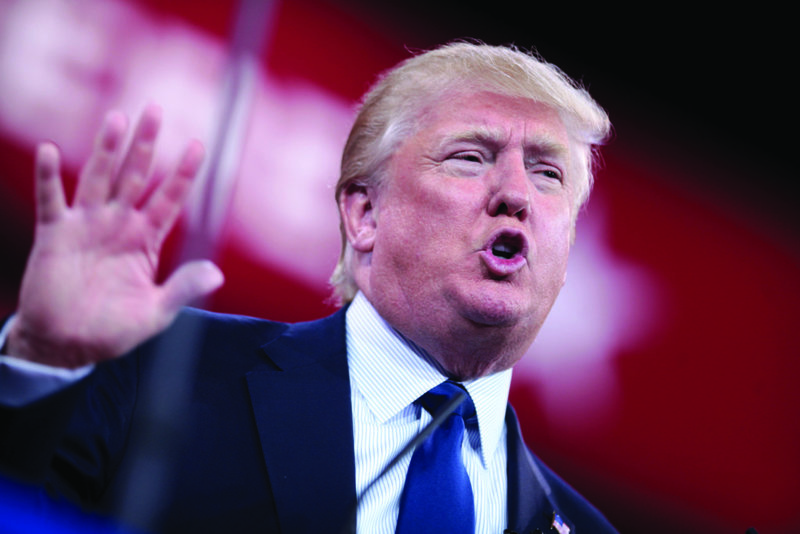Donald Trump’s Promise To Erase Modern Western History
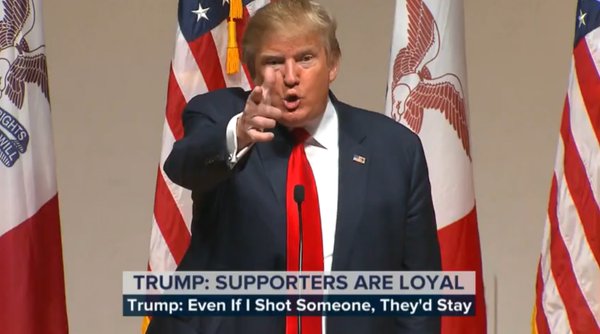
Donald Trump’s recent statements on foreign and economic policy suggest that a Trump presidency would be an unmitigated disaster for national security, domestic tranquility and international cooperation. He would quickly undo the decades of work American presidents since World War II have done towards security and globalization.
Trump’s worldview boils down to the claim that America is no longer a great country and that this is President Obama’s fault. He suggests that America’s military is weak, foreigners no longer respect us, and that Obama has ruined our country.
To begin, America’s military is still indisputably the strongest in the world. To say otherwise is simply false at best or an act of unnecessary fear mongering that makes Americans needlessly afraid.
The information regarding America’s hegemonic military spending is as freely available as it is copious, and if top-result Google searches are beyond Trump’s educational grasp, he really has no business being president. America spends an arguably absurd amount of money on military power, and as a result, US servicemen make up the best trained, best equipped, and most capable military force this planet has ever seen. So absurd that even the National Review believes some wasteful Pentagon programs, such as the infamous F-35 jet, pose an economic threat to our military preparedness.
Conservatives have repeatedly contrasted Reagan’s 600 ship Navy with the current 272 battle force ships that Obama’s Navy can deploy, but this statistic is meaningless as the quantity of ships means far less than the quality and capability of those ships. Reagan’s Navy expanded to just under 600 ships by recommissioning WWII, Korean, and Vietnam-era ships long removed from active service, and by preventing aged and obsolete ships from being decommissioned.
It was a plan for Americans to feel psychologically secure against the Soviet Union, even if it did not make much practical sense, and the usefulness of Reagan’s bloated Navy was revealed just a few years later in 1987 when soaring budget deficits convinced Congress to cut defense funding and shrink the Navy back to a more rational size. Republicans should note that all this took place long before Obama became president.
America’s Navy today is indeed smaller in quantity than it was in the mid-80s, but it is exponentially greater in quality and capability. Advances in weaponry, combat systems, and crew training act as huge force multipliers in American military might, and this dramatically exceeds the quantitative decrease in deployed ships that began before Reagan left office.
In a more general analysis, the Navy’s stated mission goals are to maintain, train, and equip combat-ready naval forces capable of winning wars, deter aggression and maintain freedom of the seas. With this in mind, it is difficult to imagine how America’s military is “crippled,” as Trump is prone to suggest, given that throughout the last seven Obama years not a single American ship has been sunk by enemies and ocean piracy has been dramatically reduced.
Another peculiar military claim Trump has made recently is that America’s NATO alliance is obsolete and needs to be reevaluated. This would be an incalculably stupid foreign policy change as NATO has been a vital contributor to America’s national security and international peace for decades now. Article 5 of the NATO agreement stipulates that the alliance will view an attack on any single member nation as an attack on all member nations, and has been perhaps the single, most predominant aspect of European security for over 60 years.
While Trump is correct in observing that the Soviet Union—which NATO was created to defend against—no longer exists, it is ridiculous to suggest that a military alliance ensuring that 28 countries, including America, will likely never be conventionally attacked again is no longer important. It would be negligent sabotage of American national security as well as global stability to subtract the US from NATO.
Perhaps the biggest indicator of NATO’s continuing importance is that countries are still trying to join NATO. New polls following Russia’s seizure of the Crimea indicate that Ukraine voters now support joining NATO by wide margins, and other Eastern European countries have much to gain from NATO’s protection.
Trump’s explanation that NATO does not focus enough on terrorism, while technically true given the pact’s original focus on containing Soviet aggression and European expansion, ignores the fact that NATO has repeatedly acted against terrorism. Perhaps Trump has forgotten NATO’s support of America’s war in Afghanistan to fight terrorism. Or that NATO allies joined the US in occupying Iraq, which only had a perceived capability of possibly wanting to attack America in the future.
Trump has also recently claimed that he would be open to Japan and South Korea leaving America’s nuclear umbrella and developing their own nuclear weapons. This is an unusual political position to take considering the decades of American leadership in nuclear non-proliferation.
In contrast to Trump’s apathy over the spread of potential nuclear destruction, President Obama recently applauded international efforts to rid South America of nuclear materials, and noted that Central Europe and Southeast Asia are on track to be free of radioactive material before the end of the year. This undeniably makes the world safer as terrorists and rogue states are less able to acquire nuclear materials needed for dirty bombs or actual nuclear devices.
Which is the whole point of America’s nuclear umbrella in the first place: to prevent nuclear arms races, which necessitate greater danger and uncertainty in global security. America’s credibility on nuclear-proliferation would be erased if a President Trump reneged on this fundamental foreign policy effort, and it would be an unfathomably hypocritical policy change given America’s recent, incredible success in halting Iran’s nuclear ambitions.
Perhaps the oddest aspect of Donald Trump’s foreign political perspective is his view that America should use its economic power to negotiate better deals—or rip off instead of getting ripped off by—our global allies, friends and trading partners. Trump has promised that he will use his strong business skills to renegotiate existing treaties and trade deals in order to realize his goal of making America great again, even going so far as to extort our NATO allies for blatant self-interest.
This may sound like a solid campaign promise, but should the “greatest country in the history of the world” in Republicans’ eyes sink to the level of economically exploiting our allies? This is perhaps an impossible proposition, as Trump would have to drastically change pretty much everything about how the international economy works. It is also a hypocritical proposition because America has had such a giant role in creating the current economic world order going back to the end of WWI.
In terms of the trade imbalances Trump frequently waxes ignorantly about, the reality is that he cannot legally reverse them singlehandedly, and, given Donald Trump’s esteemed opinion of his own business prowess, one might think Donald Trump would know that threatening invaluable trade partners like Mexico and China is not a coherent strategy for economic prosperity. Trump’s campaign speech threats that other countries will suffer economic consequences unless they voluntarily refuse profits by subtracting from America’s trade imbalances is overt extortion and a dick move that other countries could reciprocate. Such an economic policy will needlessly and stupidly antagonize our trading partners, and destroy international good will towards America.
Donald Trump would make a terrible president.

